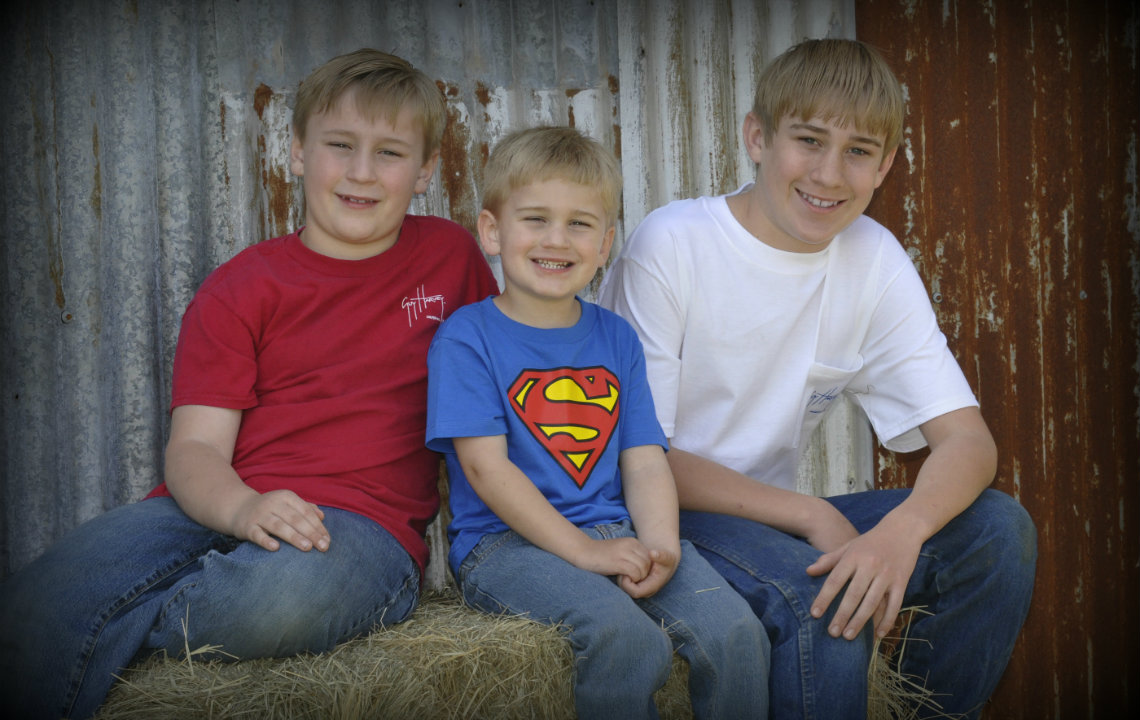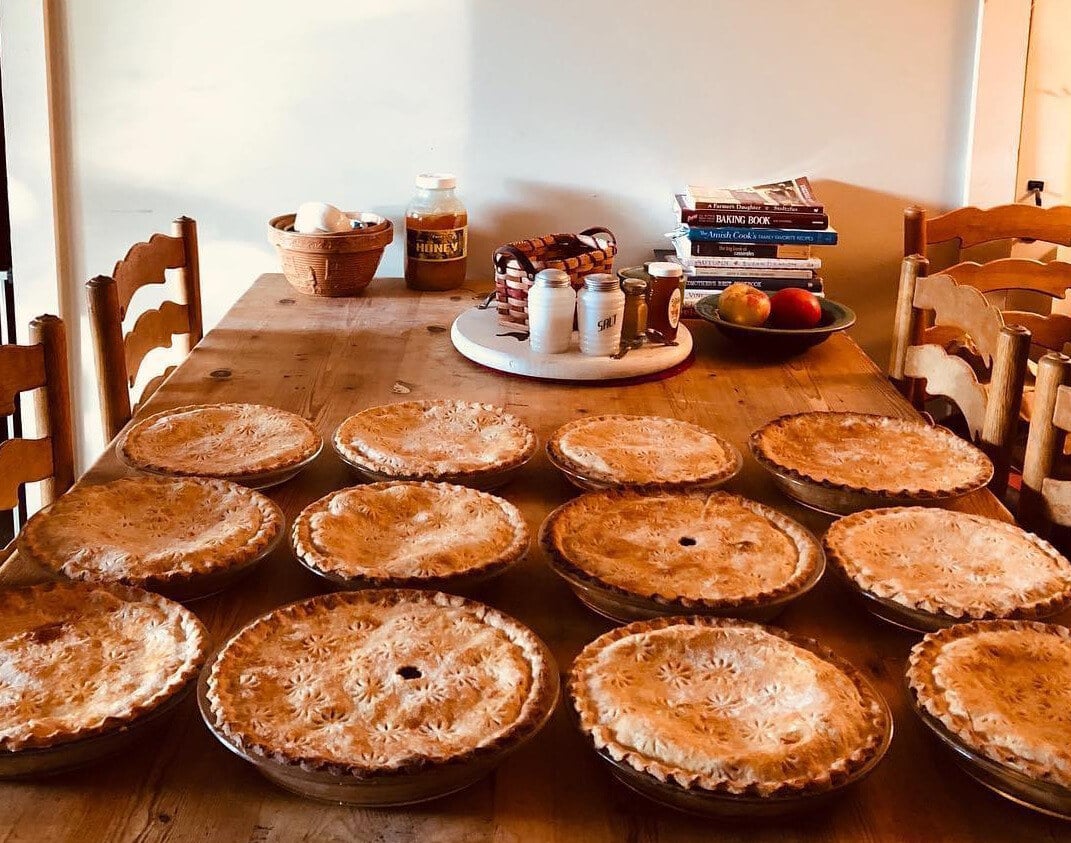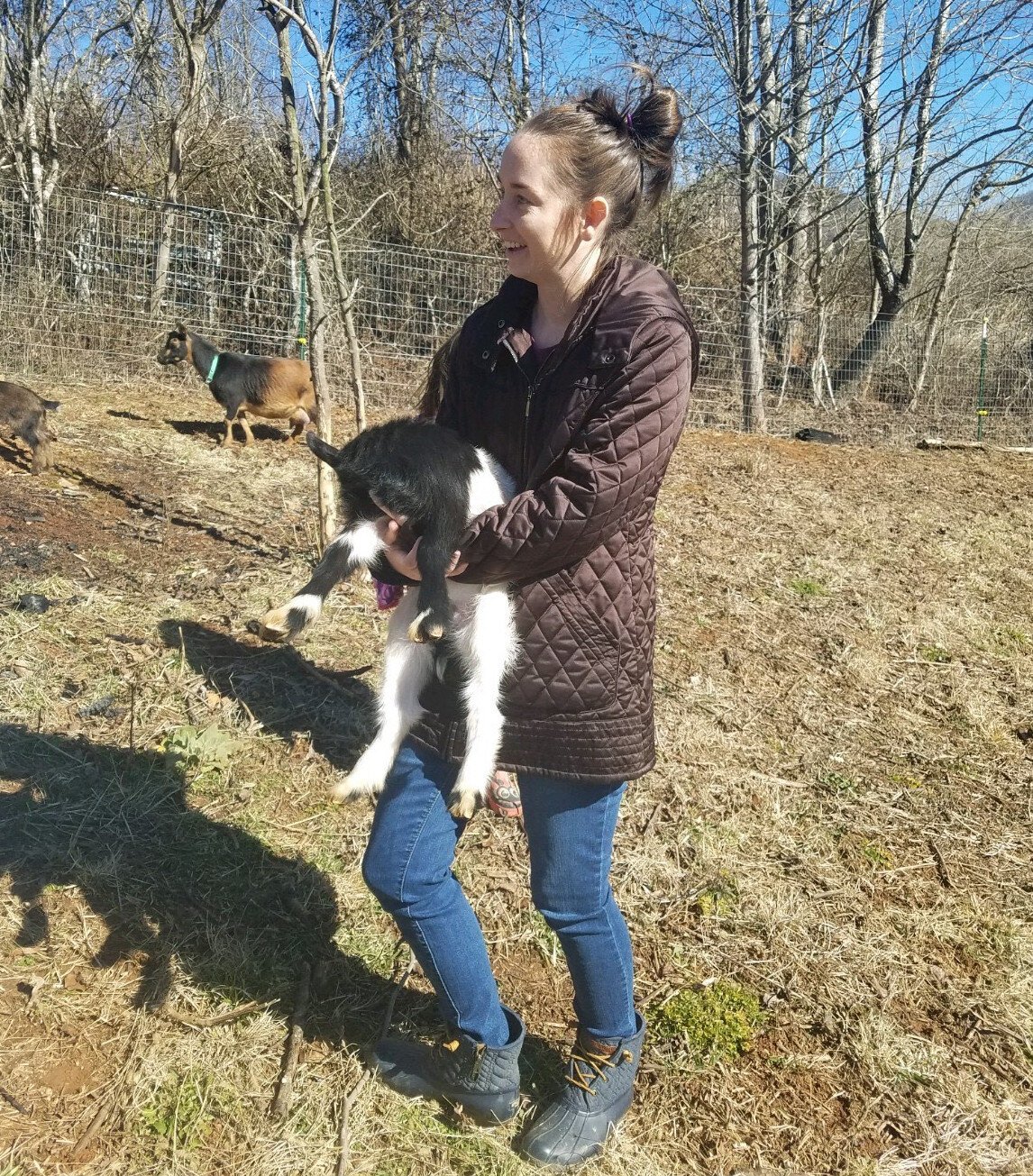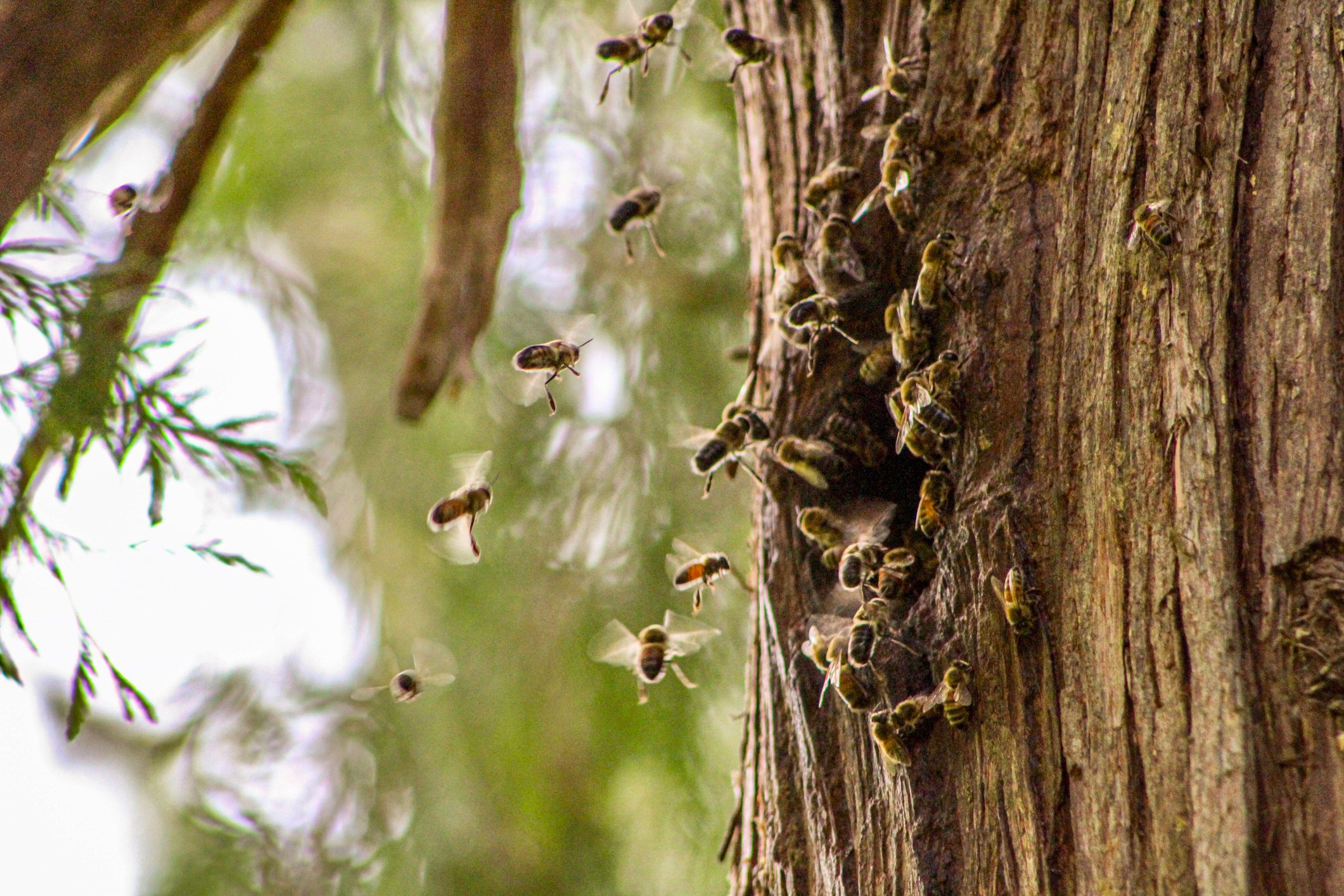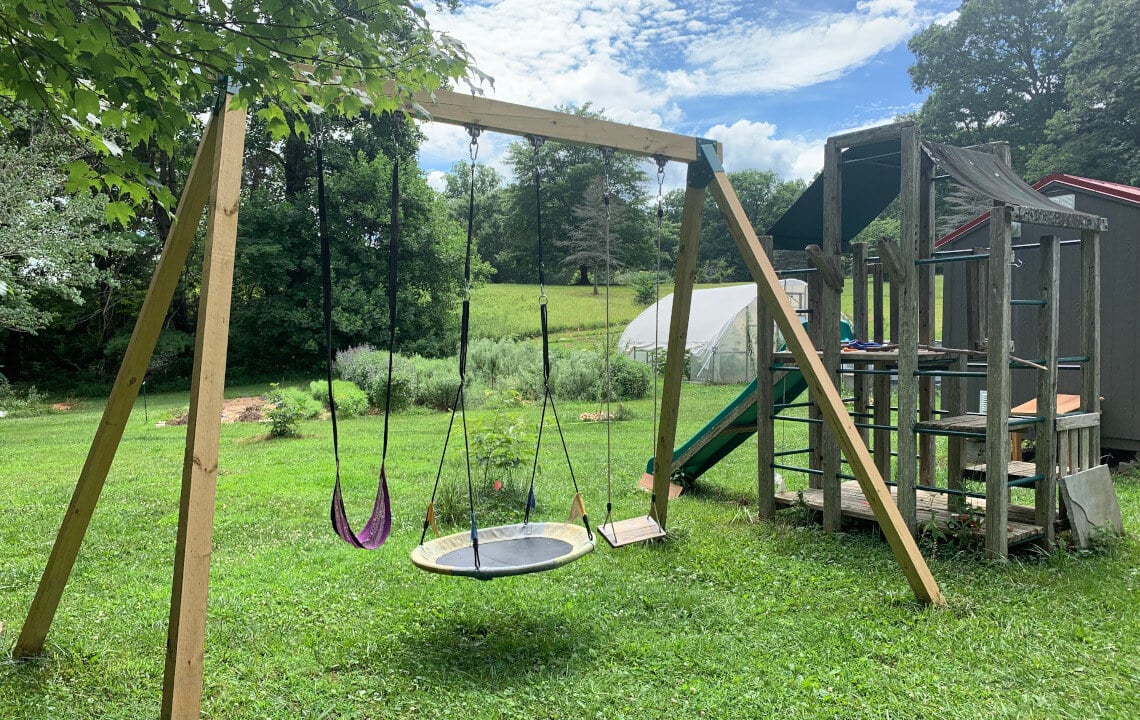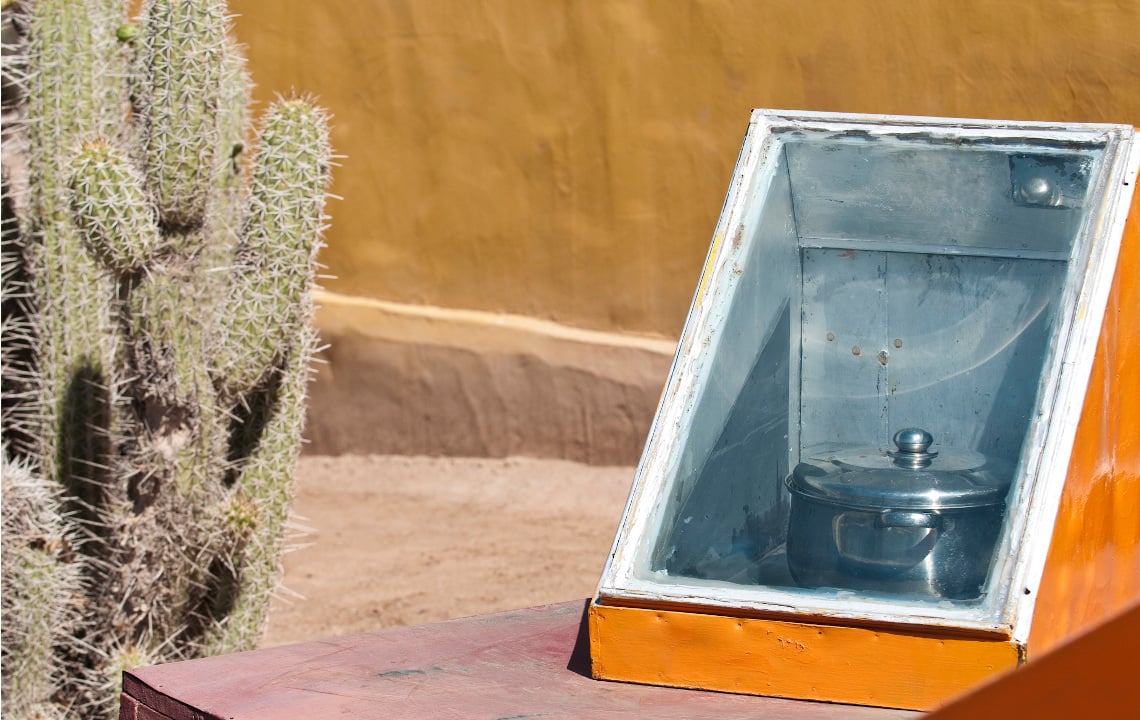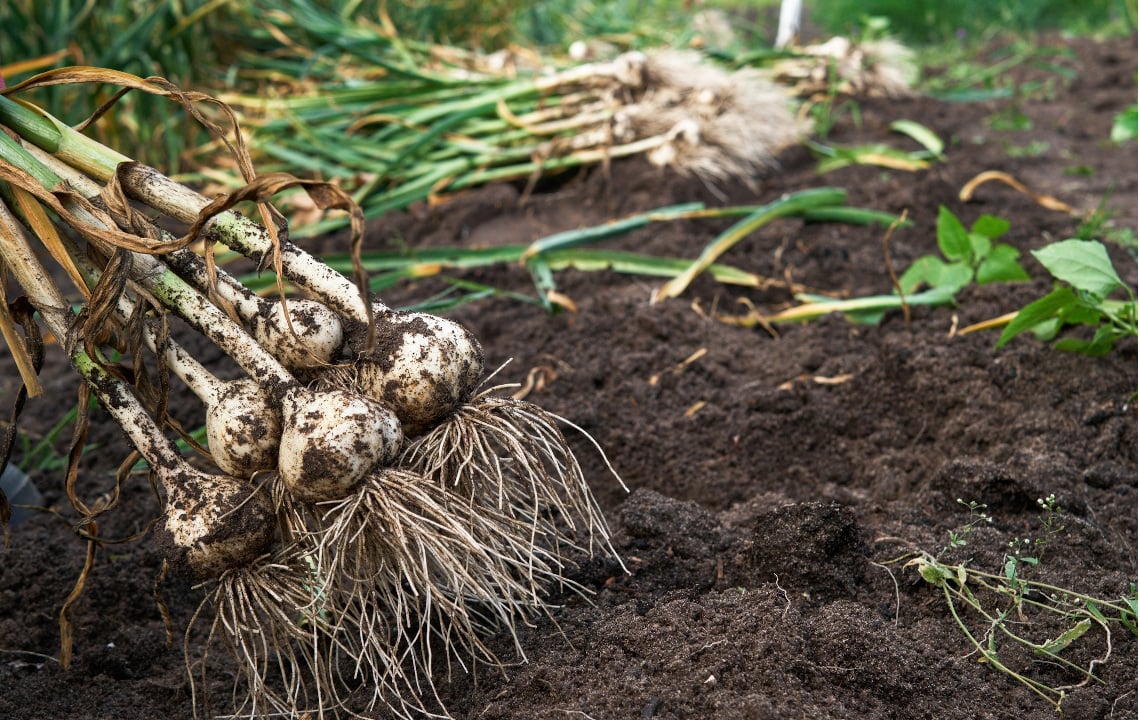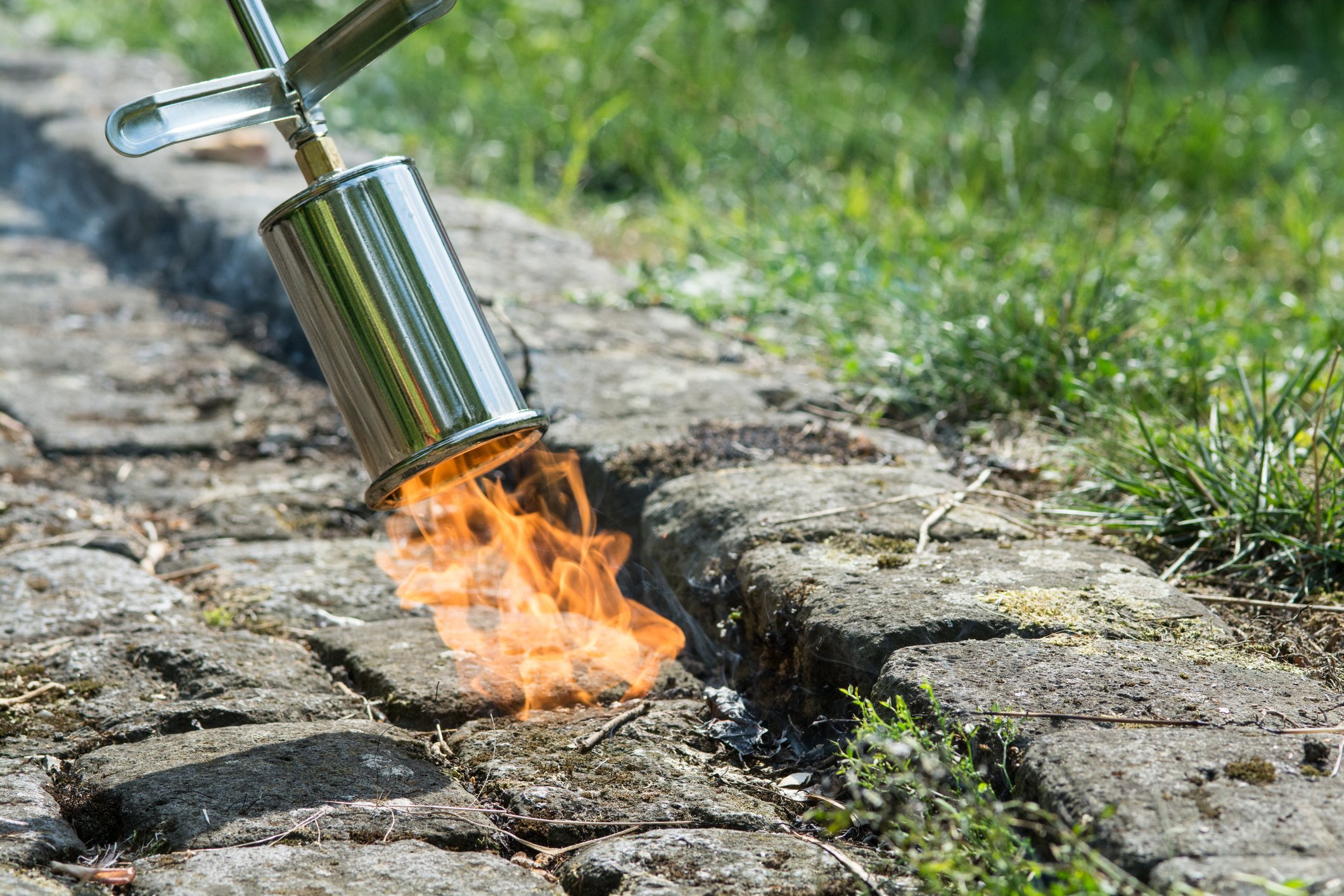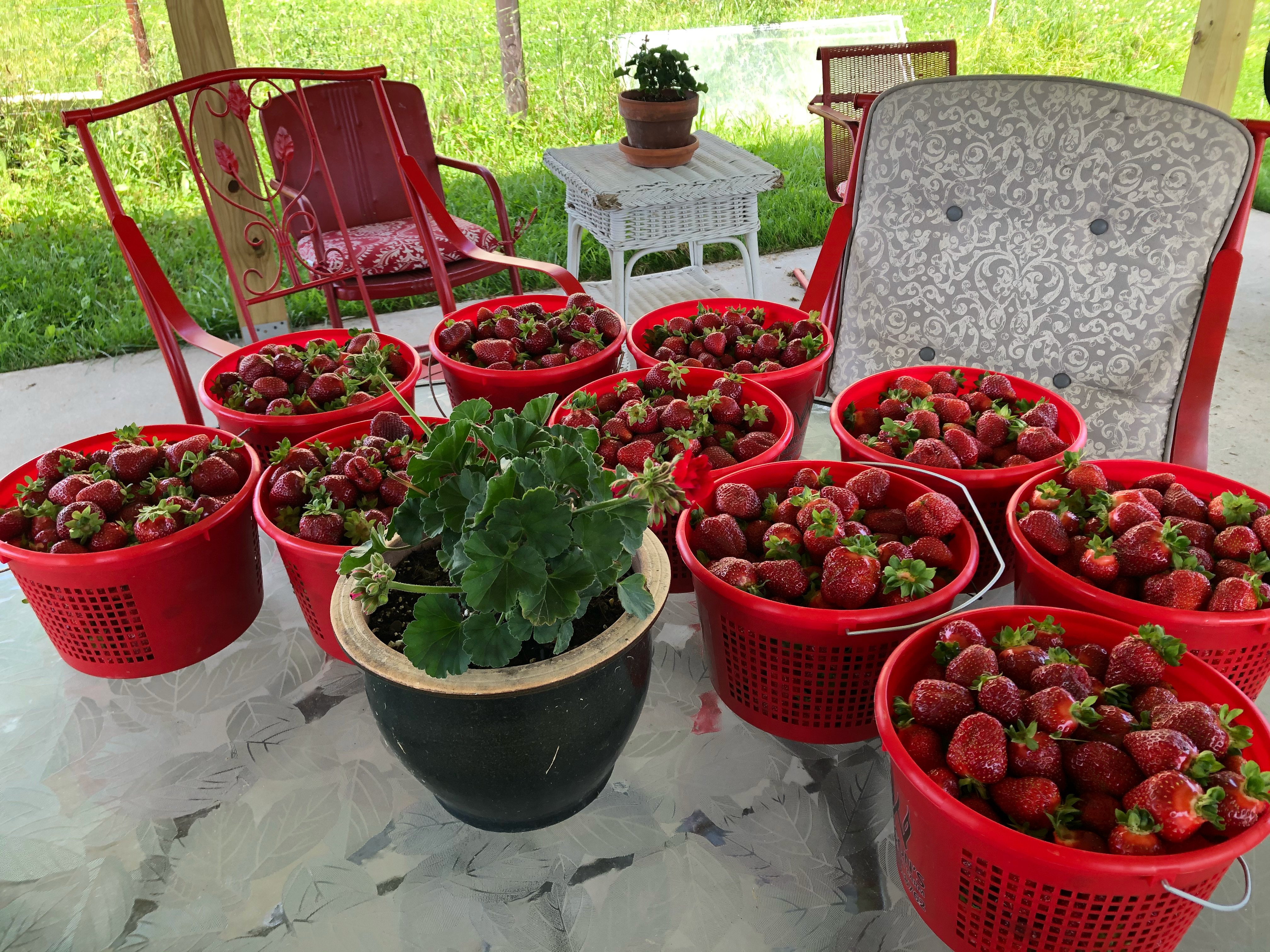A family trades life in a subdivision for a small farm, raising farm kids who know the meaning of hard work, good food and the beauty of the outdoors.
HUNTINGTON, Texas--At the Flood family homestead in this small Texas town, playtime rarely involves electronics.
 |
| The Flood family's winding, tree-lined driveway. |
So many more appealing options await outdoors for 13-year-old John Kenny, 9-year-old Jake and 5-year-old Joey, like four-wheeling in the woods, building forts and hunting squirrels. You never know what adventure is in store when you step outside on this property at the end of a long driveway lined with picturesque blossoming pear trees.
The boys’ draw to the outdoors is just what their parents, Jeremy and Suzanne Flood, had hoped for when they left their home in a subdivision, set on less than a third of an acre of land, and moved to their 10-acre hobby farm.
“I’m raising men,” says Suzanne, standing outside their rustic farmhouse to watch as the boys begin their chores. “I want them to learn how to take care of things, how to use their imaginations and how to take on responsibility.”
She makes a point of giving her boys ownership in the farm, too, so they understand the valuable skills of sustainable living, helping with the gardening as well as the animals’ care.
When the boys come home from school, each has a job to attend to:
- big brother John Kenny gives the rabbits fresh water and hay;
- middle brother Jake feeds Keven Bacon, a beloved pig that has turned into a family pet rather than a future dinner; and
- the youngest, Joey, collects eggs from the family’s brood of 13 chickens.
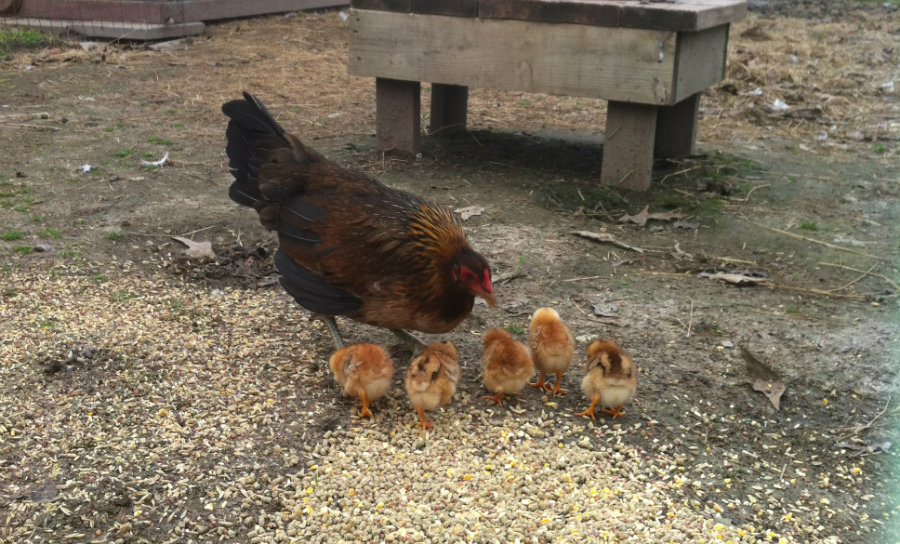
Soon after chores, it will be time for dinner, and it’s sure to be a fantastic meal: with their farm animals and two gardens, the Floods manage to raise at least half the family’s food, themselves.
 “That’s a cool part of living out here,” says teenager John Kenny. “It’s cool to know you’re eating what you grew.”
“That’s a cool part of living out here,” says teenager John Kenny. “It’s cool to know you’re eating what you grew.”
“And they’re more willing to eat it when they grew it,” adds his mother. “They love spinach, cabbage and asparagus because they had a part in growing it.”
The benefits of living on a small farm
It’s a life that involves a lot of hard work, but also a lot of rewards -- a life that an increasing number of parents are seeking as research about our nation’s health crisis continues piling up, showing that families need more time outdoors and healthier food choices.
Time in nature benefits kids not only in their physical health, but also in their mental health. This Rethink:Rural article cites a study by the American Academy of Pediatrics that shows kids need unstructured playtime outdoors in order to develop critical creative and problem-solving skills.
Offering the boys the freedom to go outside and create their own adventures has become much easier for the Floods now that they live in the country.
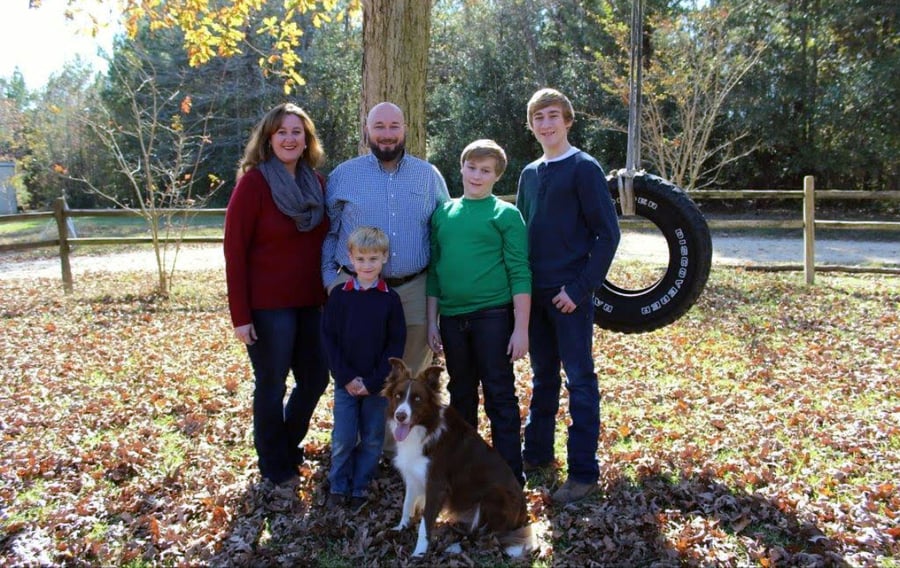 |
| The Flood family, from left to right, includes Suzanne, Jeremy, Joey, Jake, John Kenny and the family dog. |
“When we lived in a subdivision, as nice as it was there, you found yourself being a helicopter parent,” recalls Jeremy. “I wanted the boys to stay within three mailboxes of our house because I didn’t know all the neighbors.”
The same distance from their new home wouldn’t even get the boys to their treeline. Fortunately they don’t have to stay so close to home here.
“I’ve been to every spot in our woods,” says a proud John Kenny. “When my friends come over, we’ll go build a treehouse or a huge teepee. You can’t do that in a subdivision.”
Knowing how to start a hobby farm
While Suzanne and Jeremy grew up “city kids” on Amelia Island in Northeast Florida, they both longed for country life from an early age. Suzanne studied veterinary technology in school, never knowing it would one day be a godsend for managing the animals on the farm. And Jeremy, a forester, didn’t know his education would come in just as handy at home as it does at work: it’s his job to prepare the soil on the property for gardening and to determine which plants will do best in this part of Texas.
Despite the Floods’ educations, they would be the first to say they didn’t begin knowing exactly how to start a hobby farm.
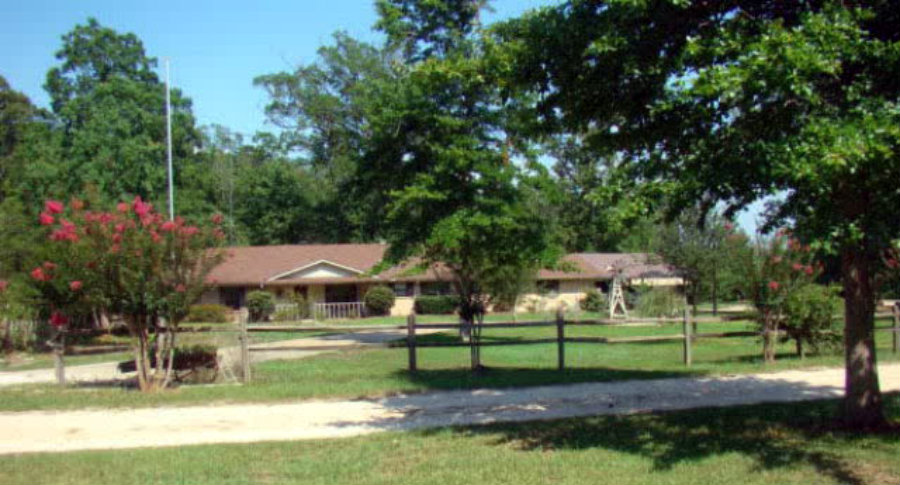 |
| The Flood family's farmhouse. |
“I don’t care how much you read or research,” says Suzanne. “Actually doing it is different.”
But with plenty of land to work with, they have had room to experiment. They started slowly, first with a garden and then chickens. Later they added more livestock to their farm, experimenting with goats, piglets and rabbits.
“There were a lot of unknowns,” says Jeremy. “Some things we tried worked out, some didn’t. But finding out what does work is part of the fun.”
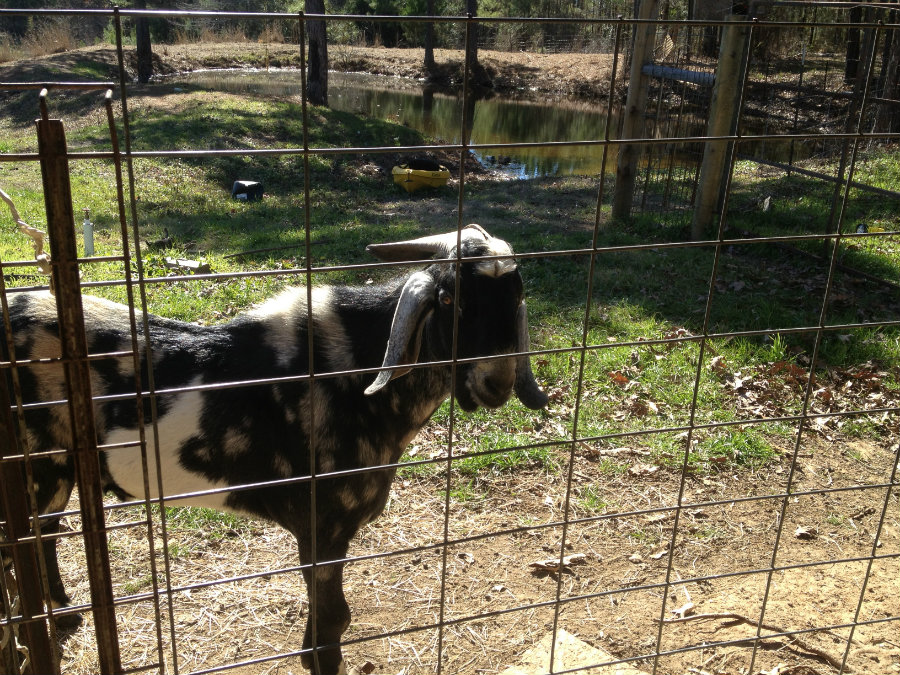
Today, they rely on their chickens for meat and eggs, keeping an entire extra refrigerator for their bounty of eggs. The rabbits also keep the family well supplied with meat, which came as a surprise even to Suzanne.
“I was tricked into eating rabbit meat the first time I had it. I ate it before I even knew what it was,” she says. “It was delicious, and it fed two families.”
Suzanne manages the family’s gardens, keeping a smaller kitchen garden stocked with herbs, tomatoes, cucumbers, zucchini and cabbage and a larger garden of corn, peas, green beans and other produce the family eats fresh and cans.
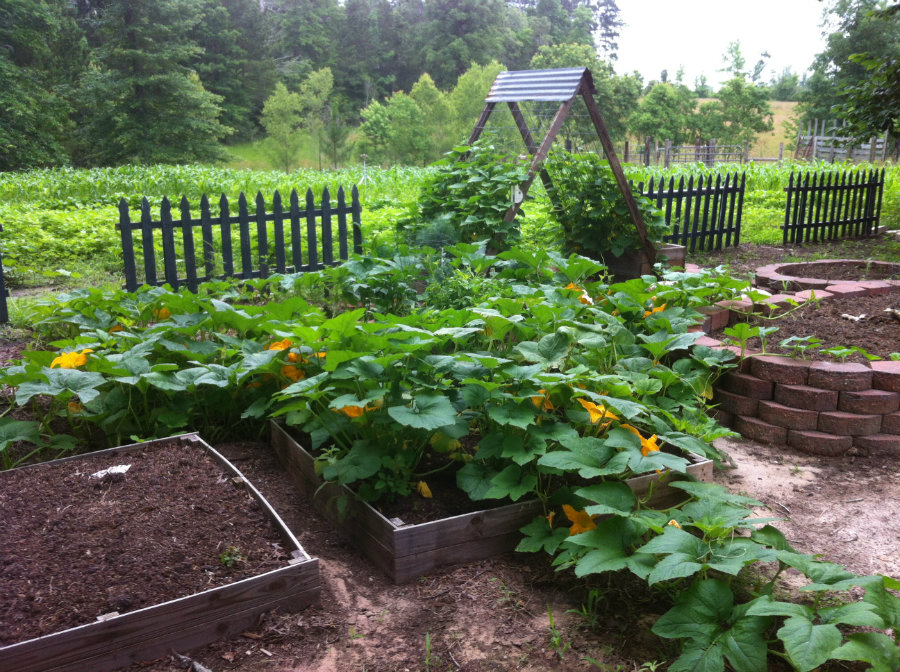
Next, the family is trying their hand at raising honeybees. Young entrepreneur John Kenny plans to raise the bees and harvest the honey, growing the colony and its profits in years to come.
“That could be college or car money, and it only takes a couple months in the summer,” Suzanne says.
No two days alike on a hobby farm
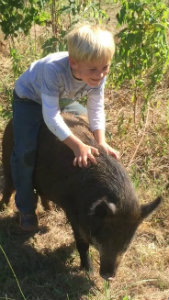 While there are routines and set chores on the farm, no two days are the same.
While there are routines and set chores on the farm, no two days are the same.
“There are many days I wish I had cameras prerecording on the property - there are a lot of priceless moments when you have animals,” Suzanne says.
One day, as she was washing dishes at her kitchen sink, she looked out the window to see Billy Bob, an ornery goat, chasing her husband down the driveway. Another time, her fearless youngest son, Joey, tried to take a ride on their portly pig, Keven Bacon. And once her middle son, Jake, very seriously looked at their black-and-white striped chickens and lamented that the family shouldn’t have taken on prisoner chickens.
“It’s those little things that are so special,” Suzanne says, chuckling at the memories.
Asked if she could ever return to life on a third of an acre, the mom doesn’t hesitate in answering:
"No, we could never live in a subdivision again."


